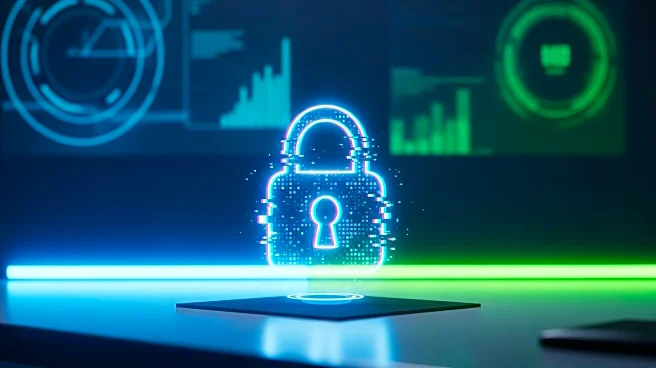What is the story about?
What's Happening?
A recent survey conducted by Gartner has revealed that nearly two-thirds (62%) of organizations have experienced deepfake attacks in the past year. These attacks often involve social engineering tactics, such as impersonating someone during video or audio calls with employees or exploiting automated verification systems like face or voice biometrics. Akif Khan, a senior director at Gartner Research, highlighted the growing threat posed by continuous improvements in deepfake technologies. He noted that deepfakes combined with social engineering are particularly effective, as they can trick employees into transferring large sums of money to attacker-controlled accounts. Khan emphasized the need for organizations to integrate deepfake detection into everyday tools like Microsoft Teams or Zoom, although he cautioned that large-scale production deployments of such solutions are still relatively new.
Why It's Important?
The rise in deepfake attacks poses significant risks to businesses, particularly in terms of financial security and data integrity. As these technologies become more sophisticated, organizations must adapt their security measures to protect against potential breaches. The impact of deepfake attacks extends beyond financial loss, as they can also damage reputations and erode trust within companies. By implementing awareness training programs and reviewing business processes, organizations can better equip employees to recognize and respond to these threats. The integration of deepfake detection tools into communication platforms could serve as a critical line of defense, helping to mitigate the risks associated with these attacks.
What's Next?
Organizations are likely to continue exploring technical solutions to combat deepfake threats, including the integration of detection capabilities into widely used communication tools. As awareness of these attacks grows, businesses may increase investment in training programs to educate employees on identifying and responding to deepfakes. Additionally, companies may revise their authorization processes, particularly in financial transactions, to include multi-factor authentication and other security measures. The ongoing development of deepfake technologies suggests that businesses will need to remain vigilant and proactive in their security strategies to protect against evolving threats.
Beyond the Headlines
The ethical implications of deepfake technology are profound, as it challenges the authenticity of digital communications and raises questions about privacy and consent. As deepfakes become more prevalent, there may be increased pressure on regulatory bodies to establish guidelines and standards for the use of such technologies. The potential for misuse in political contexts, such as impersonating public figures, could also lead to broader societal impacts, including misinformation and manipulation of public opinion. Long-term, the development of deepfake detection tools may influence the way digital communications are perceived and trusted.















